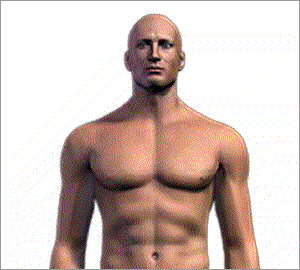Breathing Can Control
Stress & Anxiety
With good “relaxed breathing” you can control a large component of your anxiety!
It is important to note that when experiencing anxiety most people take small, shallow breaths using their shoulders to move air in and out of the lungs instead of their diaphragm (located in the belly).
Anxious/stressed breathing that is short and shallow is directly related to:
- Headaches
- Insomnia
- Tingling hands and feet
- Constant fatigue
- Muscle aches
- Tightness in chest
- Being lightheaded
Relaxed breathing can switch off the bodies stress response and settle our nervous system.
When a person is relaxed their breathing is slow, deep and gentle.
We want to take control of our breathing and calm our nervous system.
By doing Relaxed Breathing we can:
- Reduce our heart rate
- Reduce our blood pressure
- Reduce amounts of stress hormones
- Reduce lactic acid buildup in our muscles.
- Improve immune functioning
- Increase a feeling of calm
- Increase physical energy
Breathing Exercise

Try Belly Breathing
Step 1: Sit in a chair with your legs uncrossed.
Step 2: Notice any tension in your muscles.
Step 3: Put one hand on your abdomen (belly).
Step 4: Inhale slowly into the lower lungs. (Feel your belly rising) After your abdomen is full of air, allow your chest to expand. (Approximately 3-5 seconds)
Step 5: Hold the air in for 2 seconds.
Step 6: Begin to exhale air from chest very slowly through your mouth (approximately 3-5 seconds).
Step 7: Hold air out for 2 seconds then begin at Step 1 again.
Focus on the feeling and the sound of your breathing and continue the breathing exercise for 3-5 minutes.
